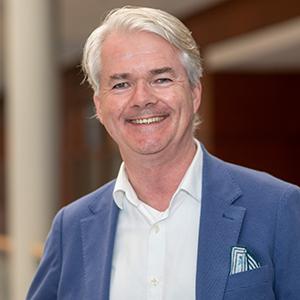Prof
Paul
Cahill

Academic biography
ACADEMIC APPOINTMENTS 2020:
Head of School
School of Biotechnology
Faculty of Science and Health
Dublin City University
2018: Chair of Vascular Biology & Therapeutics Faculty of Science and Health Dublin City University 2015: Full Professor School of Biotechnology Faculty of Science and Health Dublin City University 2002: Director, Vascular Health Research Centre Faculty of Science and Health Dublin City University 2001: Professor School of Biotechnology Dublin City University 2000: Adjunct Professor Department of Surgery and Pharmacology University of Rochester Medical Centre Rochester NY, USA 2000: Wellcome Trust New Blood Fellow School of Biotechnology Dublin City University 1999: Professor Department of Surgery and Pharmacology University of Rochester Medical Centre Rochester NY, USA 1997: Associate Professor Director of Surgical Research Division Department of Surgery and Physiology Georgetown University Medical Centre Washington DC, 20007. 1995: Assistant Professor Department of Surgery and Physiology Georgetown University Medical Centre Washington DC 20007 1992: Instructor - Research Associate Department of Surgery Division of Surgical Oncology Johns Hopkins Medical Institutions Baltimore, MD 21287 1991: Research Fellow Department of Physiology & Biophysics University of Tennessee, Memphis, TN 38163 1990: Research Fellow Department of Pharmacology New York Medical College Valhalla, NY 1059
Research interests
Cardiovascular diseases remain a major cause of mortality worldwide. Vascular biology is an exciting and rapidly advancing area of biomedical research that has led to significant insights into the treatment not only of vascular diseases such as atherosclerosis, arteriosclerosis, in-stent restenosis and hypertension, but also diabetes and tumor development.Arteriosclerosis is an important age-dependent disease that encompasses atherosclerosis, in-stent restenosis (ISR), pulmonary hypertension, autologous bypass grafting and transplant arteriosclerosis. Endothelial dysfunction and the proliferation of vascular smooth muscle cell (vSMC)-like cells is a critical event in the pathology of vascular disease leading to intimal-medial thickening (IMT), lipid retention and vessel remodelling. An important aspect in guiding clinical decision-making is the detection of biomarkers of early cardiovascular risk. Crucially, relevant biomarkers need to be good indicators of injury which change in their circulating concentrations or structure, signalling functional disturbances.
Extracellular vesicles (EVs) are small membrane-bound vesicles secreted by cells that contain numerous bioactive molecules and act as a means of intercellular communication between different cell populations to maintain tissue homeostasis, gene regulation in recipient cells and the adaptive response to stress.
MAJOR RESEARCH AREAS:
Development of a pipeline for the generation of novel, multitargeted, next generation pleiotropic cell therapy biologics derived from allogeneic immortalized human bone-marrow derived MSCsPoint-of-Care Diagnostics (POCD) for subclinical arteriosclerotic disease using exosomal profilingEndothelial derived extracellular vesicles (EVs) following endothelial dysfunction - dictating the phenotype of resident vascular stem cells, smooth muscle cells and adventitial cells during adaptive lesion formation and progression of arteriosclerotic disease.Gene regulatory networks (Notch and Hedgehog) that control resident vascular stem cell fate - myogenic, osteogenic, adipogenic, vasculogenic and myeloid differentiationMechanical stimuli (shear stress, cyclic strain and pressure) and developmental gene regulatory network control of vascular smooth muscle and endothelial cell phenotype and fate.Lineage tracing analysis and epigenetic profiling of resident vascular stem cells during arteriosclerotic disease progressionSingle cell auto-fluorescence photonic emissions and vibrational spectroscopy to discriminate vascular cell phenotypes using supervised machine learningMagnetic nanoparticles as drug-delivery platform for vascular stentsVascular tissue engineering

